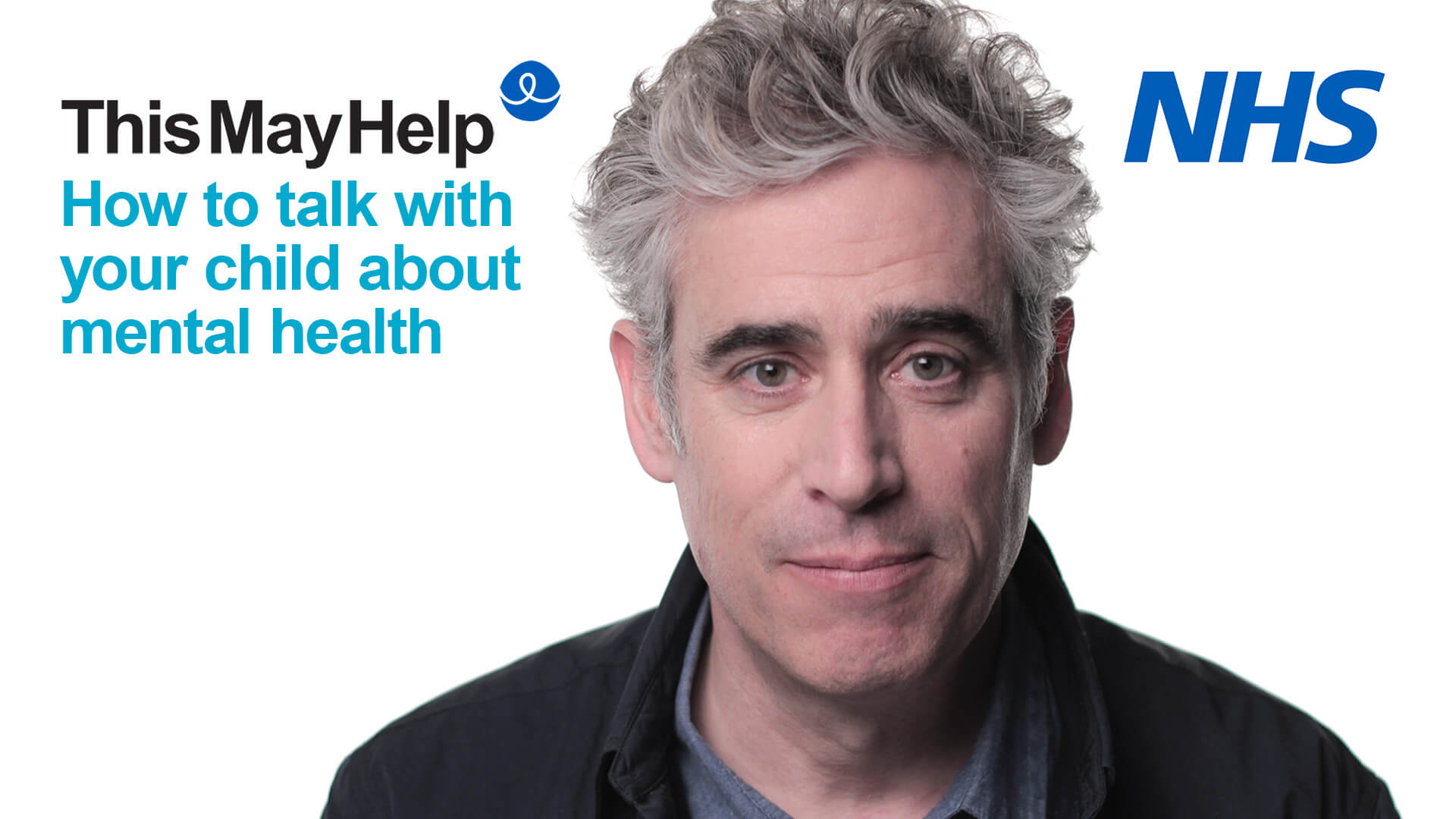Healthy dialogue is really important for a healthy mind, and although it can be hard to talk openly and honestly with each other, leaving things unsaid often makes things worse.
In this video Stephen Mangan shares some advice from NHS mental health professionals on how to to talk with your child about mental health.

Don’t let emotions get in the way
In the heat of the moment strong emotions can often be a barrier to communication. It’s much better to wait until things have calmed down and you’re both less likely to say things you don’t really mean.
Tips for reducing the impact of your emotions
- When you feel strong emotions, try to pause and take a deep breath before reacting.
- Remember that your feelings are towards the situation and not the child.
- Try to focus on being supportive rather than apportioning blame.
Things to avoid when having a conversation about mental health
- Sitting across a table can feel like an interrogation. It’s better to talk on walks or journeys when you’re both heading in the same direction, as if you’re confronting the problem together rather than confronting each other.
- If you do have something to say, remember that the aim of talking isn’t to criticise or lay blame, but to get to the heart of the problems and consider solutions together, so be mindful of the language you use. Try to avoid using accusations or generalisations like ‘you always’ or ‘you never’. It’s better to start sentences with the ‘I’, for example ‘I’ve noticed…’ or ‘I’m concerned’
- It can be difficult to get a dialogue going at times but it’s important not to force the issue or rush into it as soon as their guard comes down a little. Some people have found that text messages and emojis can be a very good way of easing into it gently.
Be prepared to listen
Vocalising what we’re thinking and feeling often helps to make things clearer in our own heads, so be aware that just being there for someone, allowing them to talk and really listening to what they have to say is usually far more valuable to them than trying to come up with all the answers.
Tips for being a good listener
- Remember that adolescence can be a difficult time and young people generally don’t have the experience, confidence, or know-how to brush off what you might consider to be trivial issues, but to them can be deeply stressful challenges.
- Try to ask questions rather than making statements. A good starting point is to ask how they’re doing.
- If they begin to open up but seem hesitant, encourage them to say more by nodding or using phrases like ‘go on’ or ‘tell me about that’. This will let them know that you care and are listening.
- Think about what they tell you and try to Imagine what that must feel like. Let them know that you understand by acknowledging how difficult it must be for them.
- Remember to say sorry when you get it wrong. It’ll mean a lot and show that you’re only human and doing the best you can.
- Try to mirror any positive steps they take and if they won’t talk at all, maybe leave a leaflet lying around. They’ll see it. And the fact that it relates to them will probably make them curious enough to take a look.
Don’t take it personally if they don’t want to talk to you
Young people need to have someone they feel they can turn to, but relationships within families can be fractious, so don’t take it personally if they find it easier to talk to someone who they’re not emotionally attached to.
People who your child can talk to about their mental health
- Friends or family members whom they trust.
- Mental health professionals or volunteers from specialist support groups. The child’s GP will be able to connect you with available resources in your area.
- Remember that everyone has the right to privacy and may not want their problems to become common knowledge, so only confide in those who need to know and who you know you can trust to be discreet.
Some resources that may help.
- For advice on building a support network, visit our dedicated page
- For general advice on parenting a child with mental health issues, visit our dedicated page
- NHS advice for supporting the mental wellbeing of others. Better Health: Every Mind matters
- For information on how to access NHS Mental health services click here
- Young Minds has tips and activity ideas for talking to your child about mental health